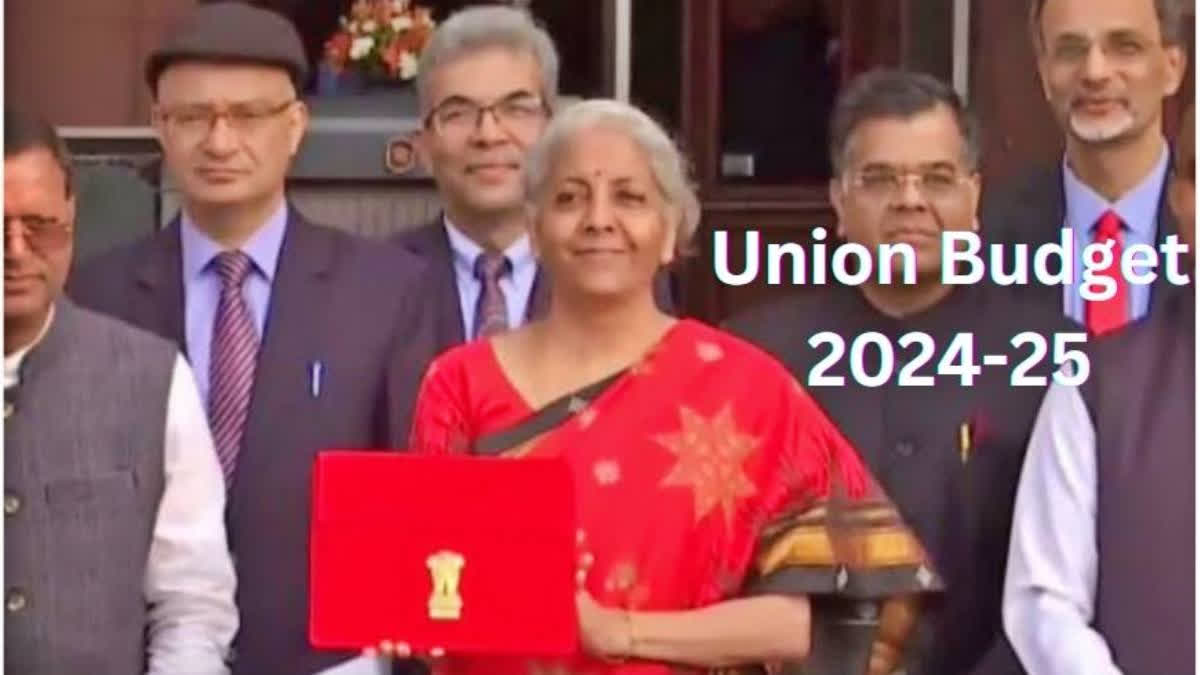New Delhi: Finance Minister Nirmala Sitharaman is all set to present the Union Government’s estimated receipts and expenditure for the next financial year on February 1. This is the biggest financial exercise taken by the Government of India in a financial year and as per the current financial year’s budget estimates, it involved receipt and expenditure of over Rs 45 lakh crore, a massive amount by any yardstick.
While Article 112 of the Constitution requires the President to cause the laying of Government of India’s Annual Financial Statement (AFS) for the next Financial Year in the Parliament, including all the details of estimated receipts and expenditure for that year, Article 116 provides that the House of the People (the Lok Sabha) will have power to make any grant in advance in respect of the estimated expenditure for a part of a financial year.
Why will there be no full budget this time?
Prime Minister Narendra Modi’s government is completing its second term in the month of May this year, in less than two months after the current financial year gets over, the Union Budget for which was passed in February last year.
It is not considered appropriate for any election-going government to pass the budget for the next full financial year as it is the right of the elected representatives (members of the Lok Sabha) to discuss and vote on the demands for grants presented by the government to the Parliament.
Since the term of the 17th Lok Sabha is going to expire in May this year hence the present Lok Sabha members have the people’s mandate to discuss and vote on the Government of India’s expenditure till the expiry of the term of the 17th Lok Sabha and not beyond that.
The Constitution provides for such a situation as no money can be withdrawn from the Consolidated Fund of India except as per a law duly passed by the Parliament authorizing such withdrawal which is called appropriation from the Consolidated Fund of India.
Article 116 which deals with Votes on Account, Votes of Credit and Exceptional Grants states that notwithstanding anything in foregoing provisions of that chapter, the House of the People shall have power to make any grant in advance in respect of the estimated expenditure for a part of any financial year pending the completion of the procedure prescribed in article 113 for the voting of such grant and the passing of the law in accordance with the provisions of article 114 in relation to that expenditure.
The Constitution provides that except the money charged on Consolidated Fund of India, any withdrawal of money will only take place if the estimates of the government’s expenditure in relation to that demand for grants for the next financial year are presented to Parliament and approved by the Lok Sabha by a vote in the Lower House.
Article 116 gives the Lok Sabha power to make any grant in advance in respect of the estimated expenditure for a part of any financial year pending the completion of the procedure prescribed in article 113 and Article 114 which entail voting and passage of a law authorizing such appropriation of money from Consolidated Fund of India.
Votes on Credit and Exceptional Grants
In addition to making provisions for a part of a financial year, Article 116 also provides that a grant can be made for meeting an unexpected demand upon the resources of India.
Article 116 further states two more conditions to deal with such requirements.
First, when on account of the magnitude or the indefinite character of the service, the demand for grant cannot be stated with the details usually given in an Annual Financial Statement (Union Budget).
Second, if there is an exceptional grant which is not part of a current service in that financial year then the Parliament will have power to authorise by law the withdrawal of money from the Consolidated Fund of India for the purposes for which the said grant was made.
Clause 2 of Article 116 also states that the provisions of articles 113 and 114 will have effect in relation to the making of any grant under clause (1) and to any law to be made under that clause in the similar manner as they have on the any expenditure mentioned in the Annual Financial Statement (the Union Budget) under Article 112.
Clause 2 of Article 116 authorising expenditure for a part of the financial year also has the effect in relation to the law to be made for the authorisation of appropriation of money out of the Consolidated Fund of India to meet such expenditure.
In case of a Union Budget, Votes on Account or Votes of Credit or other such expenditures, the role of the members of the Upper House (the Rajya Sabha) is limited to debate and discussion and no voting takes place in the Rajya Sabha as its members are not directly elected by the people unlike the Lok Sabha members who are directly elected by the people.
Read More



